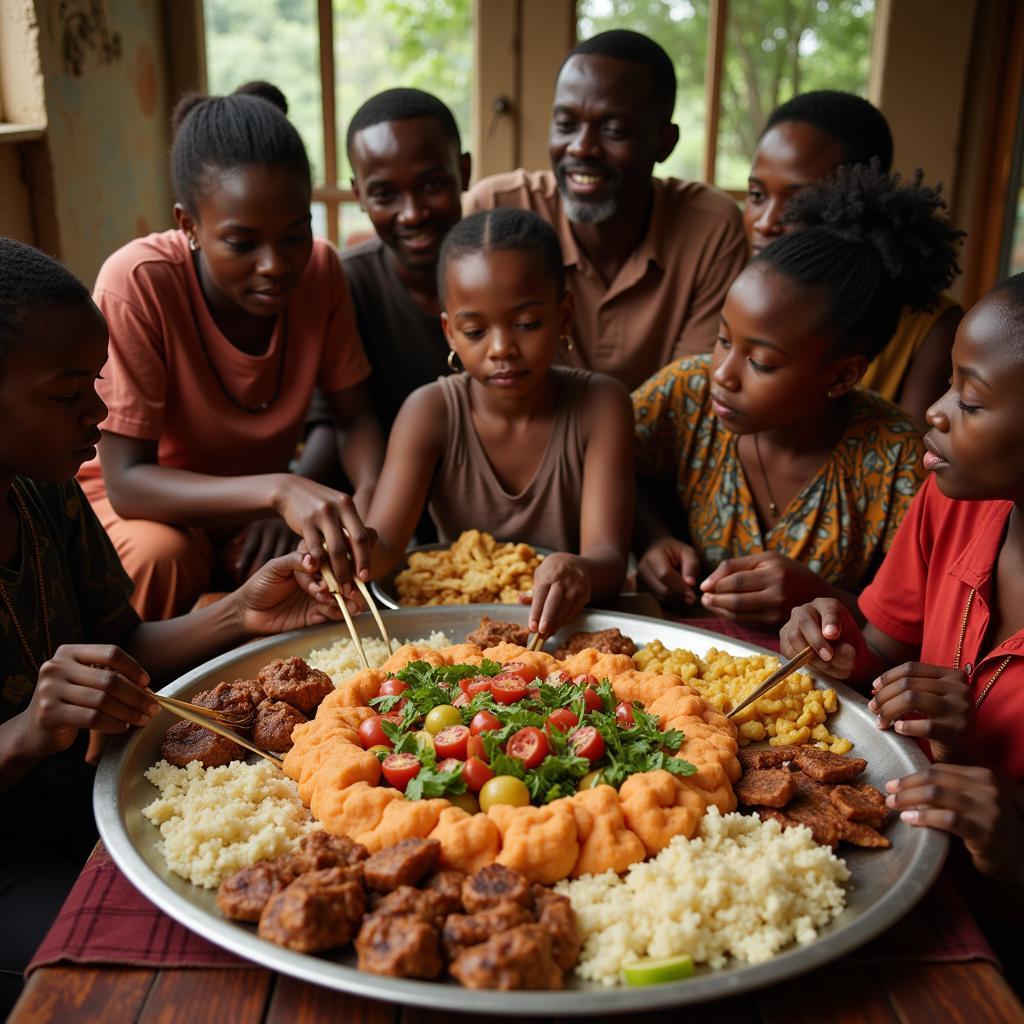African Jokes and Riddles: A Window into Culture and Humor
African Jokes And Riddles, steeped in tradition and passed down through generations, offer a unique glimpse into the continent’s diverse cultures. More than just sources of amusement, these witty expressions serve as valuable tools for education, social commentary, and preserving cultural heritage. They reflect the daily lives, beliefs, and values of various African communities, often using metaphors, proverbs, and wordplay to convey deeper meanings.
The Power of Storytelling in African Jokes
Storytelling holds a significant place in African culture, and jokes are no exception. They are often woven into larger narratives, adding humor and life lessons to captivating tales. Animals frequently feature as characters, their traits cleverly used to highlight human behavior and societal norms. For example, the cunning spider, Anansi, is a popular figure in West African folklore, often outsmarting larger animals and teaching valuable lessons through his mischievous antics.
Unraveling the Mysteries of African Riddles
Riddles, known for their clever wordplay and thought-provoking nature, are another integral part of African oral tradition. They challenge listeners to think creatively and use logic to find the often unexpected answers. These riddles often revolve around nature, everyday objects, and social customs, prompting listeners to see familiar things in new light. A classic example is: “What has an eye but cannot see?” The answer, a needle, highlights the importance of observation and challenges preconceived notions.
The Importance of Context in African Humor
Understanding the cultural context is crucial for fully appreciating African jokes and riddles. What might seem like a simple joke could carry deeper meanings related to social hierarchy, historical events, or spiritual beliefs. For instance, jokes about certain animals might be considered disrespectful in one culture while representing wisdom and strength in another. Therefore, delving into the specific cultural background of a joke or riddle unlocks a deeper understanding of its significance.
Laughing and Learning: The Educational Value of Humor
Beyond entertainment, African jokes and riddles serve as valuable educational tools. They introduce children to important cultural values, social etiquette, and problem-solving skills in an engaging and memorable way. By deciphering riddles, children sharpen their critical thinking and language skills, while jokes teach them about societal norms, moral dilemmas, and the consequences of their actions.
Conclusion
African jokes and riddles offer a fascinating journey into the heart of the continent’s diverse cultures. They entertain, educate, and preserve traditions, providing a unique window into the values, beliefs, and daily lives of people across Africa. Exploring this rich world of humor reveals the power of language, the importance of storytelling, and the enduring legacy of African oral traditions.
FAQs
1. What are some common themes in African jokes?
Common themes include animals, family life, tricksters, and social commentary on issues like poverty, wealth, and power dynamics.
2. Are there different types of riddles in Africa?
Yes, riddles can range from simple word puzzles to complex metaphors requiring extensive cultural knowledge to decipher.
3. Why are animals often used in African jokes and riddles?
Animals often represent specific human traits or characteristics, allowing for subtle social commentary and moral lessons.
4. How can I learn more about African jokes and riddles from a specific region?
Researching folktales, proverbs, and oral histories from that region can provide valuable insights into their humor and cultural nuances.
5. Are there resources available for understanding the cultural context of African jokes?
Yes, academic journals, books on African folklore, and online cultural platforms offer valuable context and analysis.
Need Assistance?
Have questions about African culture, travel, or need help planning your dream trip to the continent? Contact us!
Phone Number: +255768904061
Email: kaka.mag@gmail.com
Address: Mbarali DC Mawindi, Kangaga, Tanzania.
Our dedicated team is available 24/7 to assist you.

